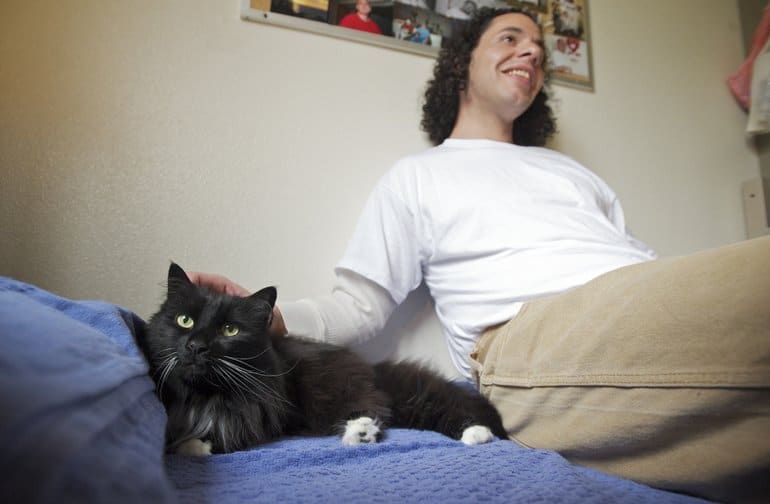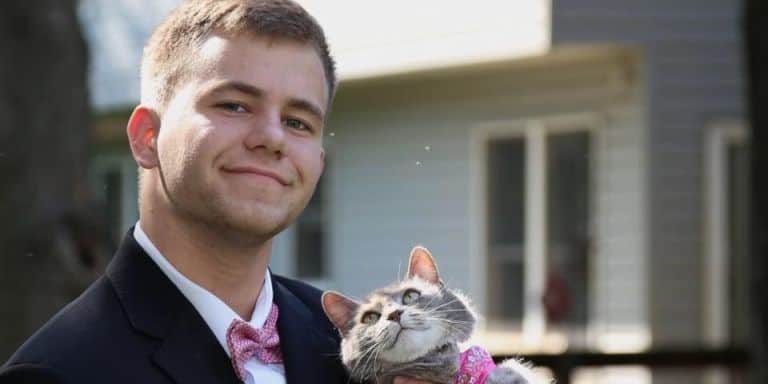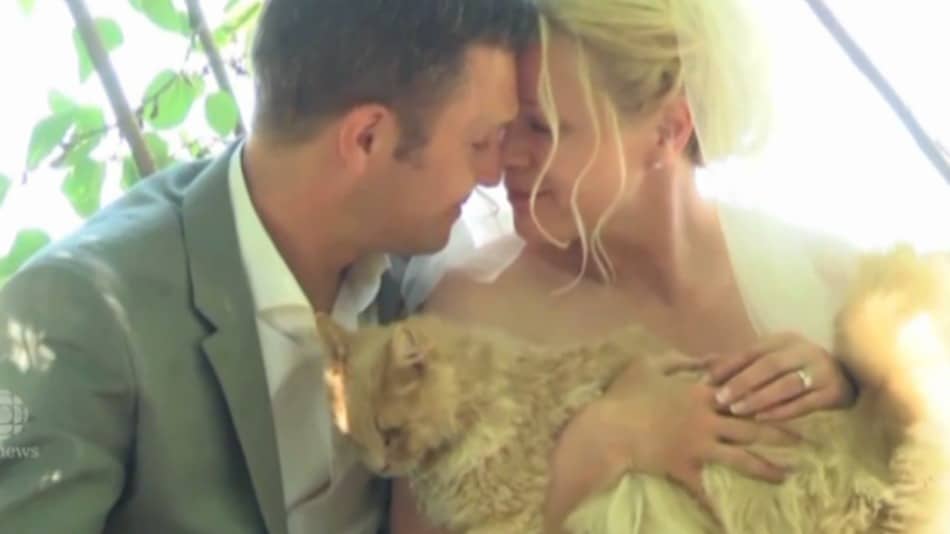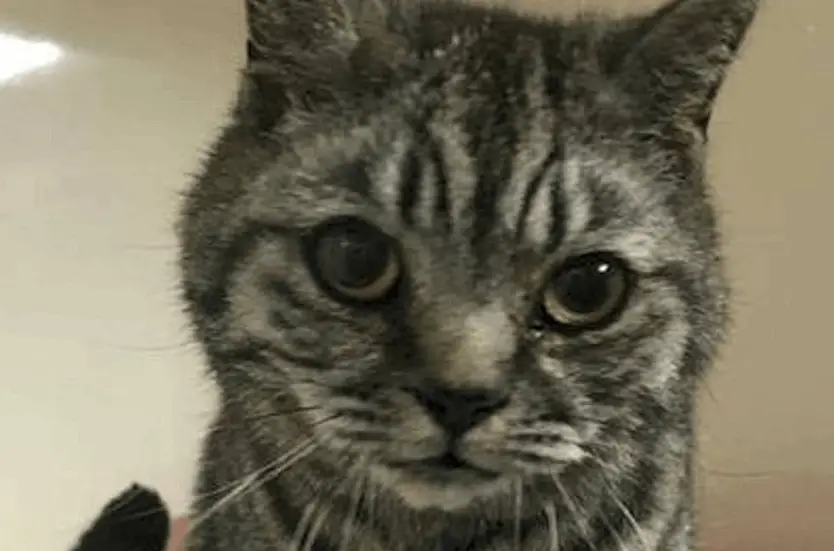
What is Spraying?
One of the most common behavioral problems in cats is “spraying.” Not to be confused with kitty urinating outside her litter tray, spraying usually refers to a cat’s tendency to pee on vertical objects such as walls, windows, and furniture. This normally takes place once kitty smells the target item, turns around with his or her tail erect and somewhat quivering, and sprays a blast of urine directly onto the aimed object. Cat spraying is a premeditated act and is unrelated to urination at all. It’s important that you do not confuse it with an improper urinating habit.
Identify the Cause

Always rule out any possible medical condition first by taking your spraying cat to the vet for a complete health check-up. It is crucial that you determine the exact cause of spraying in order to resolve the issue. If the vet gives your cat a clean bill of health, then you’ll need to try and determine what else might be causing this behavior. There are countless reasons why cats spray and these include territorial and stress issues
Is Your Cat Altered?

Is your spraying cat neutered or spayed? The urge to spray is extremely strong in an unaltered adult cat. If your cat is spraying and isn’t fixed, the easiest solution is to get your cat spayed or neutered as soon as possible. This will resolve 80-90% of all spraying problems with cats. That said, the longer you wait, and the older your cat, the harder it will be to stop this behavior once it starts.
Territorial Issues

Because cats are territorial creatures, they send the formidable message of ownership to other feline species in the neighborhood through spraying. It is simply their way of marking their territory and defining boundaries. Are there any stray or feral cats coming into your yard?
If your cat sprays in response to a neighboring cat coming into your yard, then reduce kitty’s exposure to the threat. If the outside cat is a stray or feral, consider trapping it and having it neutered. Contact a local rescue for help. If the cat belongs to a neighbor, try talking to them about taking steps to keep their cat contained. If the neighbor isn’t cooperative, consider placing cat repellents around your yard to keep the cat from entering.
Stress Factors

Spraying is a cat’s way of dealing with stress. Changes in household routines such as moving into a new place or bringing in a new member of the family, whether it’s a baby or another pet, or even losing a family member or pet, can lead to a distressing territorial battle between cats. For some cats, the mere arrival of a new piece of furniture can cause them to spray. Overcrowding, such as in multi-cat households, can also lead to this undesirable behavior.
If the cause of your cat’s spraying is stress, then try minimizing the cause of her stress however you can. Do this by spending more time with kitty and engaging in lots of fun play sessions. Make her as comfortable as possible. Try calming, stress relief aids like Feliway plugins, flower essences like Jackson Galaxy’s Spirit Essences or Rescue Remedy, or a calming collar.
In the Meantime
While you’ll need to determine the cause of kitty’s spraying in order to put an end to it, there are ways to deter him from continuing the behavior. If your cat sprays in a single area, place some food and water somewhere near that spot. Cats are very clean animals and they don’t like urinating or spraying near the source of their food. Remember, though, if you don’t find the cause of your cat’s spraying, he might just start to spray somewhere else!
If the spraying persists even after finding the cause, cleaning the area thoroughly with a bio-enzymatic cleaner, like Unique Pet Care’s Advanced Cat Odor + Stain, and putting food near the target, talk to your veterinarian or seek the help of a qualified feline behaviorist.
If you found this article helpful, help us by pinning it!





